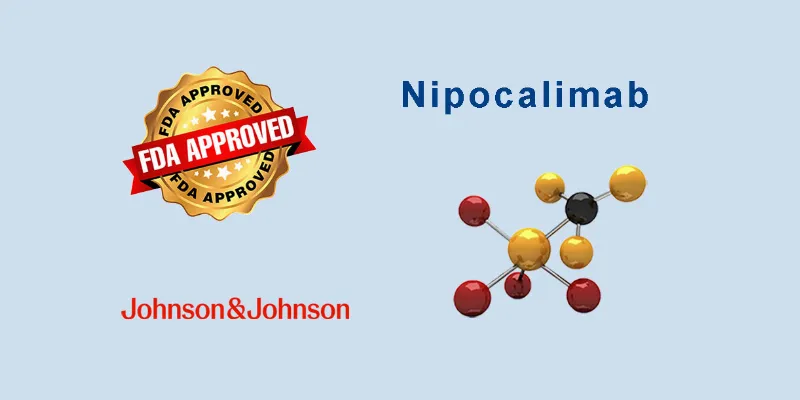Nipocalimab Submitted to FDA for Treatment of Generalized Myasthenia Gravis


FDA & EMA |
30 August 2024
The application for nipocalimab was submitted to the FDA for the treatment of generalized myasthenia gravis (gMG), following promising results from the Phase 3 Vivacity-MG3 study. This first-of-its-kind treatment demonstrated sustained disease control and safety over six months, potentially revolutionizing therapy for gMG and other autoantibody-related diseases.
Johnson & Johnson has announced the submission of a Biologics License Application (BLA) to the US Food and Drug Administration (FDA) for nipocalimab, aiming to be the first approved treatment for generalized myasthenia gravis (gMG), an autoimmune disorder affecting muscle strength. If approved, nipocalimab could become a significant advancement in treating this chronic autoimmune disorder.
Dr Bill Martin, Global Therapeutic Area Head of Neuroscience at Johnson & Johnson Innovative Medicine, expressed optimism about nipocalimab's potential, stating, "We are encouraged by the potential of nipocalimab to provide sustained disease control for people living with generalized myasthenia gravis, a chronic, life-long disease."
The BLA application is supported by promising data from the Phase 3 Vivacity-MG3 study, which demonstrated superior outcomes for patients receiving nipocalimab plus standard of care compared to those receiving placebo plus standard of care.
Notably, the study included patients with anti-AChR+, anti-MuSK+, and anti-LRP4+ antibodies, encompassing approximately 95% of the gMG patient population. This makes Vivacity-MG3 the first and only study to show sustained disease control across these subtypes over a 24-week period.
Breakthrough Potential of Nipocalimab
Nipocalimab, an FcRn blocker noted for its high binding affinity and specificity to the IgG binding site of FcRn, has demonstrated the ability to effectively lower IgG levels, including autoantibodies in gMG and other autoimmune diseases.
During the double-blind, placebo-controlled phase of the Vivacity-MG3 trial, this characteristic contributed to participants treated with nipocalimab plus standard care experiencing significant improvements in Myasthenia Gravis – Activities of Daily Living (MG-ADL) scores, a clinician-assessed scale that measures the impact of symptoms on daily activities, compared to those receiving placebo. Higher MG-ADL scores reflect greater symptom severity, underscoring the treatment’s efficacy.
Safety and Efficacy Demonstrated
The treatment's safety profile was consistent with previous studies, showcasing manageable side effects over the six months of the trial. This marked the longest period of controlled safety and efficacy assessment for an FcRn blocker in gMG, reinforcing nipocalimab's potential as a therapeutic game changer.
Implications and Future Prospects
Should the FDA approve nipocalimab, it could revolutionize treatment paradigms for gMG, offering hope to those whose conditions are inadequately managed by current therapies. Johnson & Johnson also highlighted that earlier this year at the American Academy of Neurology Annual Meeting, data focusing on nipocalimab's molecular properties were presented, suggesting its distinction in the class of FcRn blockers due to its high binding affinity and specificity.











Comments
No Comments Yet!